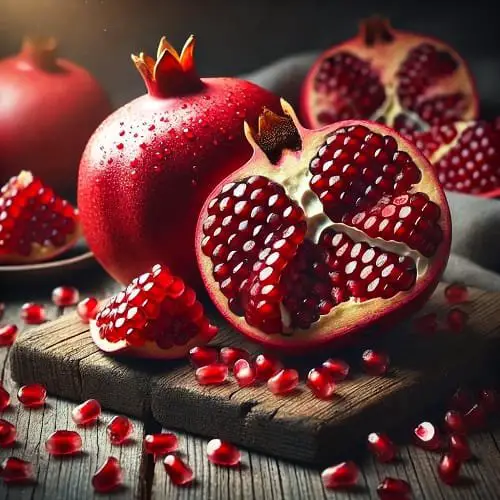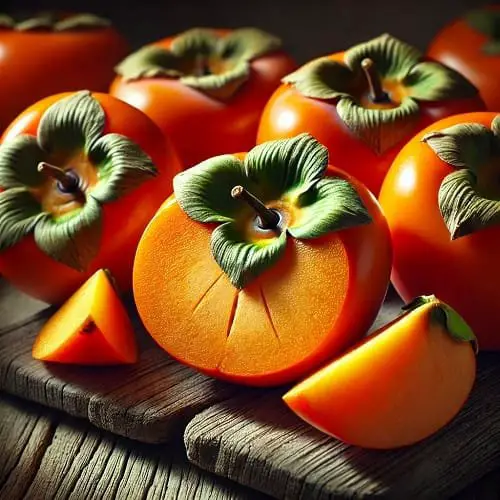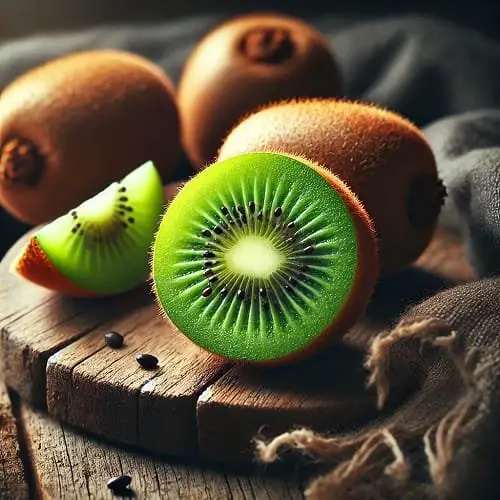Winter may be synonymous with frosty days and chilly winds, but it also brings an abundance of delicious fruits bursting with flavors and nutrients. These seasonal treasures not only brighten up the dreariness of winter with their vibrant colors but also offer essential health benefits to keep you energetic and strong throughout the colder months. From juicy oranges to antioxidant-rich pomegranates, winter fruits in season are nature’s way of keeping us healthy.
In this detailed guide, we’ll explore the wide array of winter fruits, their benefits, creative ways to include them in your diet, and much more. Dive in to discover why winter fruits in season are a must-have during the season.
Table of Contents
- What Are Winter Fruits?
- Top Winter Fruits in Season
- The Nutritional Power of Winter Fruits
- Winter Fruits: A Sustainable Choice
- The Joy of Exploring Winter’s Bounty
- How to Incorporate Winter Fruits into Your Diet
- Tips for Buying and Storing Winter Fruits
- FAQs About Winter Fruits
- Q1: What are the best winter fruits for weight loss?
- Q2: Are frozen winter fruits as healthy as fresh ones?
- Q3: Can I use winter fruits in savory recipes?
- Q4: Can I use winter fruits to boost my immune system?
- Q5: What is the best way to store winter fruits to keep them fresh?
- Q6: Are winter fruits good for hydration?
- Q7: Can I freeze winter fruits for later use?
- Q8: Are there any exotic winter fruits I should try?
- Q9: What are some kid-friendly ways to include winter fruits in meals?
- Q10: Do winter fruits have anti-aging benefits?
- Conclusion
What Are Winter Fruits?
Winter fruits are those that naturally ripen during the colder months, thriving in chilly conditions. Unlike fruits that peak in summer or fall, winter fruits are specifically adapted to withstand cooler temperatures and are harvested fresh during winter. These fruits, rich in vitamins, fiber, and antioxidants, play a critical role in maintaining immunity and overall health, especially during flu season.
Common examples include oranges, grapefruits, apples, pears, and exotic options like persimmons and kiwis. The bounty of winter fruits in season provides a variety of flavors, from sweet and tangy to mildly tart, making them versatile additions to any meal.
Top Winter Fruits in Season
1. Oranges

Oranges are one of the most popular winter fruits in season, known for their tangy flavor and vibrant color. They are a citrus powerhouse packed with vitamin C.
- Health Benefits:
- Enhances immunity to protect against colds and the flu.
- Promotes healthy skin with powerful antioxidants.
- Aids digestion due to its high fiber content.
- How to Enjoy:
- Freshly squeezed orange juice is perfect for breakfast.
- Add orange slices to green salads for a zesty twist.
- Use orange zest in cakes or cookies for an aromatic touch.
2. Grapefruits

Another star among winter fruits, grapefruits are a tart and tangy delight packed with nutrients. Available in pink, red, and white varieties, they’re a favorite for those seeking a refreshing start to their day.
- Health Benefits:
- Helps with weight management by reducing appetite.
- Rich in antioxidants like lycopene, which fight inflammation.
- Lowers cholesterol levels, supporting heart health.
- How to Enjoy:
- Sprinkle a little sugar or honey on grapefruit halves and enjoy.
- Blend into smoothies with spinach and bananas for a nutrient boost.
- Pair with avocado for a unique salad.
3. Apples

Although often associated with fall, apples remain a staple fruit well into the winter months. With their versatility and long shelf life, they’re a kitchen favorite.
- Health Benefits:
- High in dietary fiber, which promotes gut health.
- Rich in antioxidants that help lower the risk of chronic conditions.
- Regulates blood sugar levels, making them diabetic-friendly.
- How to Enjoy:
- Bake apples infused with cinnamon and nuts for a heartwarming sweet dish.
- Slice and pair with peanut butter for a healthy snack.
- Use them in smoothies or juicing recipes.
4. Pears

Pears, another winter favorite, are known for their sweet and juicy flesh. They’re an excellent choice for those who love naturally sweet fruits.
- Health Benefits:
- Packed with soluble fiber, pears improve digestion.
- Rich in vitamin C and copper, which boost immunity.
- Supports healthy weight loss due to low-calorie content.
- How to Enjoy:
- Poach pears with spices like cinnamon and cloves.
- Add sliced pears to cheese boards for an elegant touch.
- Use in baking for tarts and crumbles.
5. Pomegranates

Pomegranates, with their ruby-red seeds, are among the most visually stunning and nutrient-dense winter fruits. They’re an antioxidant powerhouse.
- Health Benefits:
- Rich in polyphenols, which protect against oxidative stress.
- Supports heart health by reducing blood pressure.
- Enhances memory and brain function.
- How to Enjoy:
- Sprinkle pomegranate seeds on yogurt or salads.
- Use seeds as a topping for desserts or oatmeal.
- Juice them for a tangy, refreshing drink.
6. Persimmons

Persimmons are an exotic fruit with a smooth, honey-like flavor, perfect for winter indulgence.
- Health Benefits:
- High in vitamin A, supporting eye health.
- Contains antioxidants that promote skin vitality.
- Improves digestion with natural dietary fiber.
- How to Enjoy:
- Eat fresh or dried for a quick snack.
- Add to fruit salads or smoothie bowls.
- Use in baking to create flavorful cakes or breads.
7. Kiwis

Kiwis are small but mighty, boasting more vitamin C per serving than oranges. They’re a winter staple for boosting immunity.
- Health Benefits:
- Supports healthy skin and hair.
- Improves sleep quality by increasing serotonin levels.
- Boosts the immune system against seasonal illnesses.
- How to Enjoy:
- Slice and eat as is, scooping out the flesh with a spoon.
- Add to fruit salads or parfaits.
- Use in tropical-inspired smoothies.
8. Cranberries

Cranberries, often associated with the holiday season, are not just for decoration. They’re a powerhouse of nutrients and can be used in various recipes.
- Health Benefits:
- Prevents urinary tract infections (UTIs) with unique compounds.
- Improves gut health with beneficial phytochemicals.
- Reduces the risk of heart disease.
- How to Enjoy:
- Create a homemade cranberry sauce.
- Mix dried cranberries into oatmeal or granola.
- Use fresh cranberries in baking muffins or breads.
ALSO READ
65 Foods That Start with Z: A Comprehensive Guide to Unique and Delicious Finds
15 Fruits That Start With V: Unveiling Nature’s Hidden Gems
Unlock Vibrancy: Honey Citrus Mint Tea Recipe and Its Powerful Benefits
The Surprising 7 Health Benefits of Balsamic Vinegar: Is This Tangy Elixir the Secret to Wellness?
The Nutritional Power of Winter Fruits
Winter fruits in season are loaded with essential nutrients that support overall health. Here’s why they should be a staple in your winter diet:
- Boosts Immunity: Citrus fruits like oranges and grapefruits are rich in vitamin C, which strengthens the immune system.
- Supports Digestive Health: Fiber-rich fruits like apples and pears help regulate digestion and promote gut health.
- Protects Against Chronic Diseases: Antioxidants in pomegranates and kiwis combat free radicals, reducing the risk of conditions like heart disease.
- Improves Skin Health: Winter fruits, with their high vitamin and water content, prevent winter dryness and enhance skin texture.
Winter Fruits: A Sustainable Choice
Choosing winter fruits in season is not just beneficial for your health but also a more sustainable choice. Seasonal fruits are typically grown locally, which reduces the carbon footprint associated with transportation and storage. They also require fewer artificial resources like energy-intensive greenhouses, making them a more eco-friendly option.
By eating fruits that thrive naturally in winter, you support local farmers, promote biodiversity, and enjoy the freshest, most flavorful produce available. Whether you’re savoring a crisp apple or indulging in juicy pomegranate seeds, you’re also making a positive impact on the environment.
The Joy of Exploring Winter’s Bounty
Exploring winter fruits in season can be a delightful journey of flavors and creativity. Each fruit, from the tartness of cranberries to the velvety sweetness of persimmons, offers unique culinary opportunities.
Experimenting with different combinations, such as pairing kiwis with yogurt or baking pears with spices, not only enhances your meals but also introduces you to the rich diversity of winter’s produce. These fruits remind us that even in the coldest months, nature provides an abundance of nourishing treasures to keep us healthy, energized, and inspired.
How to Incorporate Winter Fruits into Your Diet
Looking for easy ways to enjoy winter fruits in season every day? Here are some tips:
- Start Your Day Right: Begin your morning with a fresh fruit salad or a smoothie featuring oranges, kiwis, and cranberries.
- Snack Smart: Keep apples and pears on hand for a quick and healthy snack.
- Get Creative in the Kitchen: Use pomegranates and persimmons in salads, desserts, or even savory dishes.
- Try Juicing: Experiment with combinations like grapefruit and ginger for a refreshing drink.
Tips for Buying and Storing Winter Fruits
- Shop Seasonal: Look for local and seasonal fruits for the freshest options.
- Check for Ripeness: Choose fruits that are firm and vibrant in color.
- Store Properly: Store fruits like apples and pears in the fridge, while citrus fruits can stay at room temperature.
- Avoid Overbuying: Buy smaller quantities to ensure fruits are consumed fresh.
FAQs About Winter Fruits
Q1: What are the best winter fruits for weight loss?
Grapefruits, apples, and pears are ideal for weight loss as they’re low in calories but high in fiber.
Q2: Are frozen winter fruits as healthy as fresh ones?
Yes, frozen fruits retain most of their nutrients and are a great alternative when fresh options are unavailable.
Q3: Can I use winter fruits in savory recipes?
Absolutely! Fruits like oranges, pomegranates, and cranberries can add a unique twist to savory dishes like salads, sauces, and marinades.
Q4: Can I use winter fruits to boost my immune system?
Yes, winter fruits in season like oranges, kiwis, and grapefruits are rich in vitamin C and antioxidants, which are essential for a strong immune system. Including these fruits in your daily diet can help your body fight off colds and infections during the winter months.
Q5: What is the best way to store winter fruits to keep them fresh?
The best storage method depends on the fruit. Apples and pears stay fresh longer in the refrigerator, while citrus fruits like oranges and grapefruits can be kept at room temperature. Ensure proper air circulation and avoid storing fruits in sealed plastic bags to prevent moisture buildup.
Q6: Are winter fruits good for hydration?
Yes, many winter fruits in season, such as oranges, kiwis, and grapefruits, have high water content, making them excellent for hydration. Consuming these fruits can help combat the dryness caused by cold weather and indoor heating.
Q7: Can I freeze winter fruits for later use?
Absolutely! Fruits like cranberries, pomegranate seeds, and peeled orange segments freeze well. Freezing preserves their nutritional content, and they can be used later in smoothies, baked goods, or as toppings.
Q8: Are there any exotic winter fruits I should try?
Yes, exotic winter fruits in season like persimmons and passion fruit are worth exploring. They bring unique flavors and nutrients to your diet, offering a refreshing change from traditional options.
Q9: What are some kid-friendly ways to include winter fruits in meals?
Winter fruits in season can be turned into fun snacks for kids by making fruit skewers, blending them into smoothies, or using them to top pancakes and waffles. Baking fruits like apples and pears with cinnamon is another kid-approved way to enjoy them.
Q10: Do winter fruits have anti-aging benefits?
Yes, many winter fruits like pomegranates, oranges, and kiwis are rich in antioxidants and vitamin C, which promote collagen production and protect the skin from damage, helping to maintain a youthful appearance.
Conclusion
Winter fruits in season are a delightful way to embrace the colder months. From the tangy sweetness of oranges to the exotic allure of persimmons, these fruits are not only delicious but also packed with health benefits. By incorporating a variety of these fruits into your diet, you can enjoy vibrant flavors while boosting your immunity, improving digestion, and enhancing overall well-being. So, head to your local market and fill your basket with the bounty of winter fruits—nature’s gift for a healthier, happier season.






